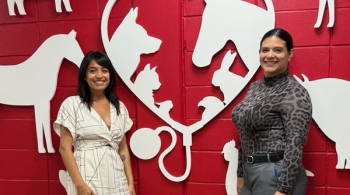
Forgetful? Try some sleep
New study suggests a good night's rest will help you remember tomorrow's to-do list.
How many times have you left work feeling like you forgot to do something? It could be a missed call to Ms. Smith letting her know Fluffy's medicine is in, or a file that keeps falling to the wayside. If you have trouble remembering what's on your daily agenda, you may need more sleep. Psychologists at the Washington University in St. Louis say that's because sleep is connected to prospective memory.
Unlike retrospective memory, which allows you to recall events from the past, prospective memory relates to remembering things you intended to do. Common examples of prospective memory include remembering to give a boarding pet its daily medication, relay a message to an associate veterinarian, or pick up a card for the head technician's birthday tomorrow.
In a recent study on prospective memory, researchers concluded that sleep did enhance one's ability to remember to do something in the future. The exact mechanics are still being hammered out, but the researchers believe that during slow-wave sleep, a trigger or association is developed. What's interesting is that this association isn't necessarily what you would expect.
Take this example:
You intend to relay a message to your practice manager tomorrow. A strong cue for remembering to give this message would be to see the practice manager A weak cue would be seeing the conference room where the two of you will attend a meeting the next afternoon. What sleep supposedly does is strengthen the weak cue, making you more likely to remember to relay the message once you see the conference room.
For more on the findings, see the June online issue of Psychological Science.
Newsletter
From exam room tips to practice management insights, get trusted veterinary news delivered straight to your inbox—subscribe to dvm360.






